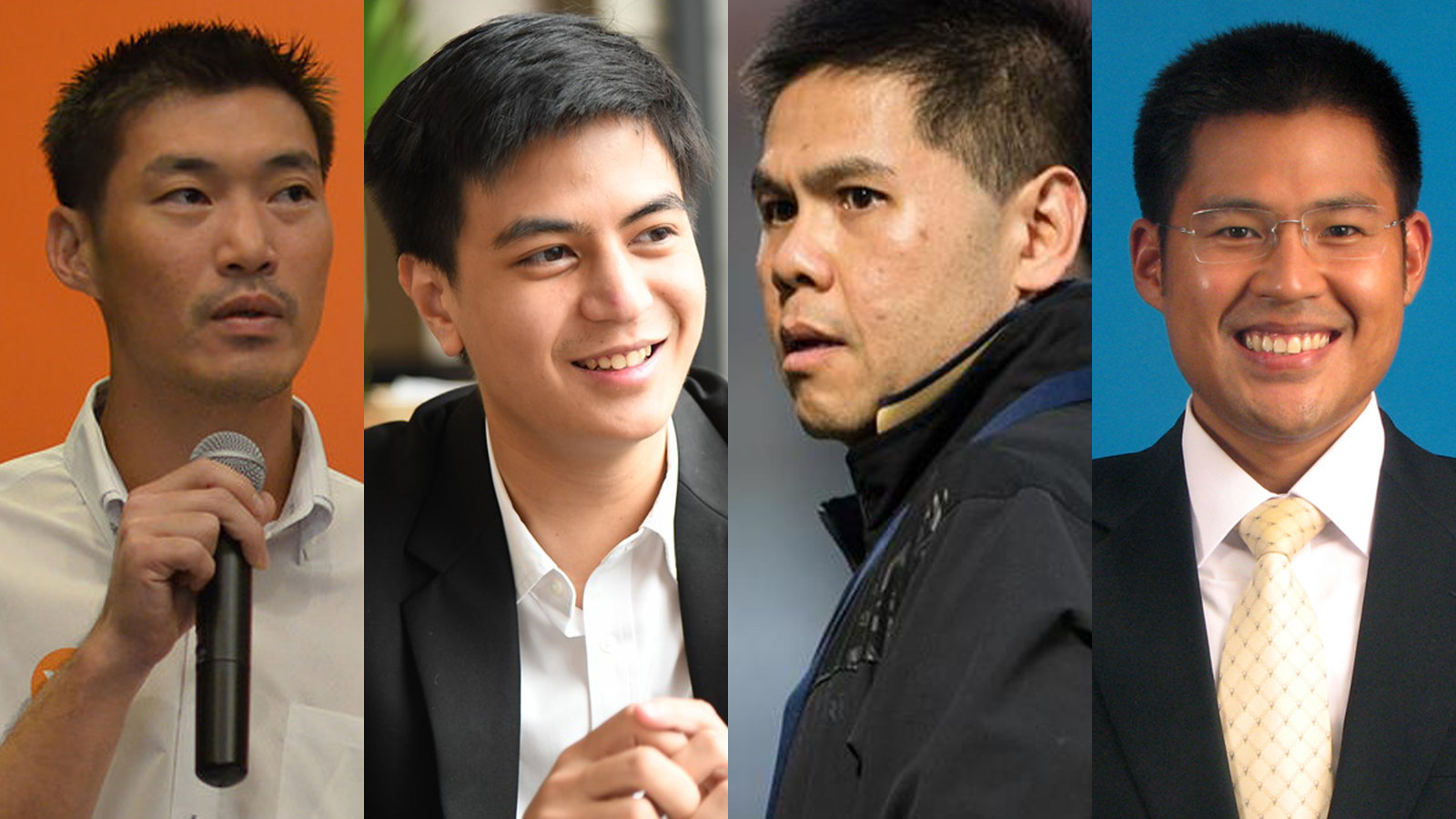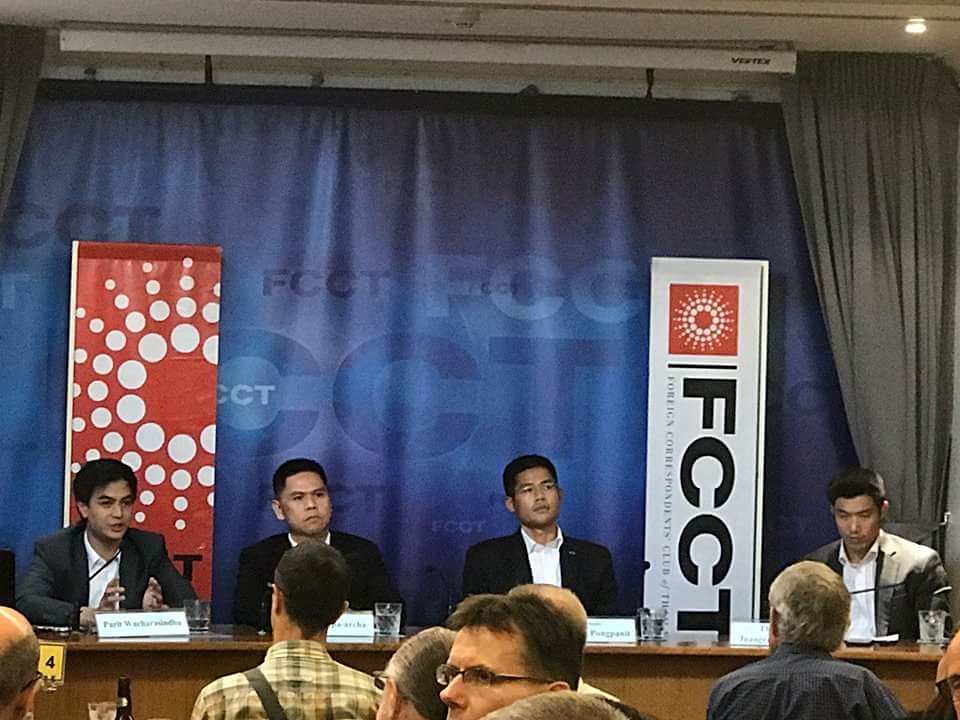The headline-generating leader of the fledgling Future Forward Party (FFP) is prompting established parties to present younger faces, and progressive values as the general election is expected to be held in February next year.
The buzz and optimism surrounding Thanathorn Juangroongruangkit, leader of FFP, drew a packed house to a panel discussion on Wednesday night at the Foreign Correspondents' Club of Thailand (FCCT) between the charismatic auto tycoon and new generation representatives from the three established political parties. Overall the politicians took a conciliatory tone, expressing gratitude toward Thanatorn for bringing more attention to Thai politics, and shining a spotlight on all of the parties in the process.
From left: Thanathorn Juangroongruangkit, Parit Wacharasindhu, Varawut Silpa-archa and Preechapol Pongpanit
Thanatorn said that although he has only been in the political sphere for less than three months, he attributes his popularity to the fact that “people have been oppressed for so long that they are looking for something new.”
He said he sees himself as an alternative to the old parties and institutions that the public have lost faith in. He affirmed his commitment to the democratic principles, to not having an outsider prime minister, to drafting a new people’s constitution and to military reform.
Thanatorn said that although many of his ideas are similar to Thaksin’s, he would be able to convince the conservative elite to accept his progressive ideas. “I come from the one percent, but I’m standing for the 99. You would be surprised how much the one percent are willing to listen to me,” Thanatorn said when asked whether the wealthy would accept his ideas. “For just one reason and one reason only. I am not Thaksin. They listen to me. And the content is the same.”
Parit Wacharasindhu tried to distance himself from his uncle, former prime minister Abhisit Vejjajiva. He identified himself as a member of the “new generation”, the “new politicians” and the “new Democrats”. These “new politicians” he said had to go beyond the colour divide and be more inclusive.
“What you know is more important than who you are,” he said and pointed out that all of the current party representatives were men and had parents who were involved in politics. He said his membership in the Democrat party was not inevitable and said he was unsure if he would be willing to represent the party until about two months ago.
Parit particularly underscored the importance of decentralisation of power in the form of provincial elections, and of a free press and freedom of expression. He also emphatically stated that he would not vote for an outsider prime minister was he elected to parliament. “I believe it is deceptive to the electorate to propose a prime minister, the identity of which no one knew when they cast their voting ballots,” Parit said. “I will pledge right now that I will not put my hand up for an outsider PM and I will fight my hardest to make sure that the Democrats also do not.”
From left: Parit Wacharasindhu, Varawut Silpa-archa, Preechapol Pongpanit and Thanathorn Juangroongruangkit
Their rhetoric stood in contrast to that of Varawut Silpa-archa, representative of the Chart Thai Pattana party and the son of the former prime minister Banharn Silpa-archa, who emphasised gradual change over revolution and the inclusion of the older politicians.
He said the biggest priority for the next election is making sure chaos and unrest doesn’t lead to another coup. He said that most of the country is more concerned with selling their rice than who is representing Thailand, and so his first concern after the election would be improving the education system.
Varawut also acknowledged the perception that his party is an “eel” and sacrifices any defined ideology to form coalitions. He said his party instead showed the importance of compromise in government. To that comment, Parit jokingly said “It’s very unfair to say that Chart Thai Pattana is sliding and doesn’t have an ideology. For me, it’s very obvious that they have an ideology, and that it’s to be in government.”
Lt Preechapol Pongpanit of the Pheu Thai party underlined his party’s stance of supporting a self-sufficient economy, increased access to technology for the poor, and education reform to focus less on rote learning and more on collaboration and dialogue. “Even Thais don’t believe in Thai education,” he said, pointing out that those who have enough money send their children to international schools.
All the politicians mentioned their commitment to free and fair elections, a compromise between parties, and a free press.



